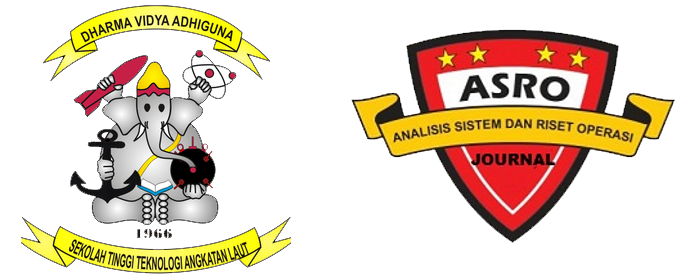SHIPMENT INDUSTRY DEVELOPMENT STRATEGY WITH INTERPRETATIVE STRUCTURAL MODELING (ISM) APPROACHES
DOI:
https://doi.org/10.37875/asro.v10i3.178Keywords:
Shipping industry, development strategy, ISMAbstract
The shipping industry sub-sector, although contributing quite significantly to Indonesia's economic growth, has not yet included leading commodities in industrial development in Indonesia. The problem that must be examined in the effort to develop the shipping industry is the absence of the determination / application of the right strategy to be able to maximize the potential of the existing potential that enables the shipping industry to become a competitive industry. The research is carried out with the following stages: - Searching for sources of information that can provide an overview of the boundaries, subject matter of the study, developments and problems in the shipping sub sector, territorial understanding, understanding of management strategies, to then set the goal formulation as the direction of conducting research. - Conducting an expert survey to review and determine the elements / sub elements related to the development strategy of the shipping industry real sector of the shipping industry. - Designing a structuring system by conducting studies / determination of the key elements of development, with Interpretative Structural Modeling (ISM). Based on the results of expert studies, 4 elements and 12 sub elements were determined that have strong interactions with the development of the shipping industry in Indonesia. The elements are then analyzed by the level of interaction with the ISM-VAXO technique. The first step is to study the contextual relationship in the form of the SSIM-VAXO Matrix. This method has been able to classify all sub-elements into four quadrants based on the value of Drive Power and Dependence and in the hierarchical structure based on Ranking and Level, which then informs the key sub-elements of the development of the shipping industry, namely: sub-elements: Provision of human resources with shipping knowledge and skills adequate (7) and sub-elements Improvement of managerial skills training program (8).
Keywords: Shipping industry, development strategy, ISM



